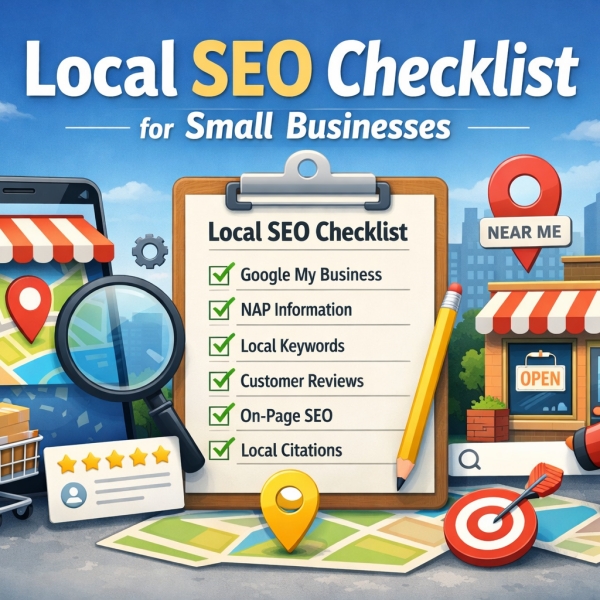Recently, Google has announced that it will no longer be developing new ways to track individual users across the internet. Additionally, Google plans to phase out its existing ad-tracking capabilities on its Chrome browser. This news has far reaching implications for both businesses and consumers.
Google’s plans are a result of a push for more privacy for internet users. Tracking consumers online with third-party cookies and location services is meant to improve the ad experience. Advertising could be more relevant because business could target a precise audience based on activity and location data.
The collection of personal data has allowed various companies and firms to create personalized maps of your preferences. Your online activity controls the sort of advertising experience you get.
Note: These changes don’t apply to Google Maps and other Google services.
Changing Your Advertising Experience
With these targeted ads, it felt like businesses always knew everything about you. It didn’t matter whether you used an iPhone or an Android phone. It didn’t matter if you turned off location services. You could deny the apps and services you use access to your location, search history, settings, or pictures. Even after taking all these measures, you were still seeing that flight to Hawaii after mentioning taking a vacation.
The halting of Google’s ad-tracking services is being viewed as a win for consumers online. You can now browse the internet on the world’s most popular search engine without having to worry about companies tracking your location and collecting an excessive amount of your personal data.
(Users have always had greater privacy on alternate search engines, such as DuckDuckGo, or Firefox.)
Calls for reduced data collection by companies online have been building for some time, and Google’s actions seek to alleviate these concerns.
It may seem that Google’s plan appears to exclusively benefit end consumers, and not business owners. However, businesses can stand to improve their image in the mind of consumers with revised practices.
Changing the Narrative
Targeted ads, which target certain consumers at particular times and locations to encourage purchase in real time, have begun to backfire on companies. People often feel disturbed by targeted ads. It’s as if you are being watched all the time by the brand that is trying to sell to you with Google tracking. This can make consumers avoid the brand that was tracking them.
So, with Google phasing out the capabilities to track online users, companies will be guided into a more likeable role. The customer will now view your brand as a business that does not collect their data and respects their privacy.
Bad for Business?
As positive as Google’s announcement is for consumers, it can seem like very bad news for businesses. Buying ads using individual tracking data has been a reliable and effective method for driving more quality customers to your business. Without this valuable tool, it can seem like effective digital marketing will be impossible.
Although, a future without targeted ad capabilities does not have to be bleak. Stopping Google location services from being part of your marketing is now only a matter of time. But, your brand can still flourish by utilizing different digital marketing strategies. That is why there is no better time to overhaul your business’s organic marketing strategy.
Overhaul Your Organic Marketing
Organic marketing is all about maximizing the online tools that are given to you to spread awareness of your brand. Organic marketing refers to your online marketing efforts that utilize free means and channels. So instead of paying third parties to reach your target audience, you will be reaching them in a natural and economical way. The primary methods of organic marketing are SEO, social media management, and reputation management.
Method 1: Search Engine Optimization (SEO)
Search Engine Optimization (SEO) is one of the most effective ways for you to increase awareness of your brand. SEO consists of producing quality content for your business’s website that includes keywords that would be featured in a Google search. This practice will lead your business appearing much higher up on Google search results when customers search something related to your brand.
Why is SEO in order to appear higher up on Google results important? 67% percent of all clicks on Google search results go to the first five organic results. Additionally, 75% of people do not even look at the second page of search results. SEO is a great way for you to ensure that people are seeing your brand in a seemingly organic way.
Method 2: Social media management
Social media management is another way of engaging in organic marketing. With social media, you have the capability to interact with your customers in a way that creates and strengthens strong relationships. Additionally, proper management of your social media channels can provide SEO benefits.
When done correctly, social media can be a great way of raising awareness for your business. You promote yourself in a way that does not make consumers feel like they are being sold to. Through careful social media management that seeks to provide value to your customers, you can turn your customers into advocates for your brand. This sort of word of mouth promotion is free to you, and even more effective than Google tracking advertisements.
Method 3: Reputation management
Reputation management is another valuable organic marketing strategy your business can implement. When researching businesses, 92% of consumers read online reviews. With online reviews being the first impression of your brand for so many people, you want to ensure it is positive.
If you have negative reviews, you are going to drive away potential customers. With over half of customers avoiding businesses with less than a 4 star rating, it is critical to minimize negative reviews and maximize positive ones. Reputation management can include providing quality content as well as customer support to ensure customers choose to delete any negative comments they may have had.
By implementing these strategies to bolster your organic marketing approach, your business will have no problem navigating the post-Google tracking marketplace. Although, managing all of these techniques can be difficult if you don’t know where to start, especially for a small business. Luckily, Noble House Media can provide you with expert advice and assistance through every step of the organic marketing development process.
Take the Next Step
We at Noble House can provide you with high quality digital content that is sure to boost the SEO of your business. Our team of experts can create visually appealing social media posts that will attract more customers. And we can help to ensure that when consumers investigate your brand, they find nothing but glowing reviews.
If you want to learn more about organic marketing and how Noble House Media Group can help you, learn more about our services, or call (203) 903-1225.












